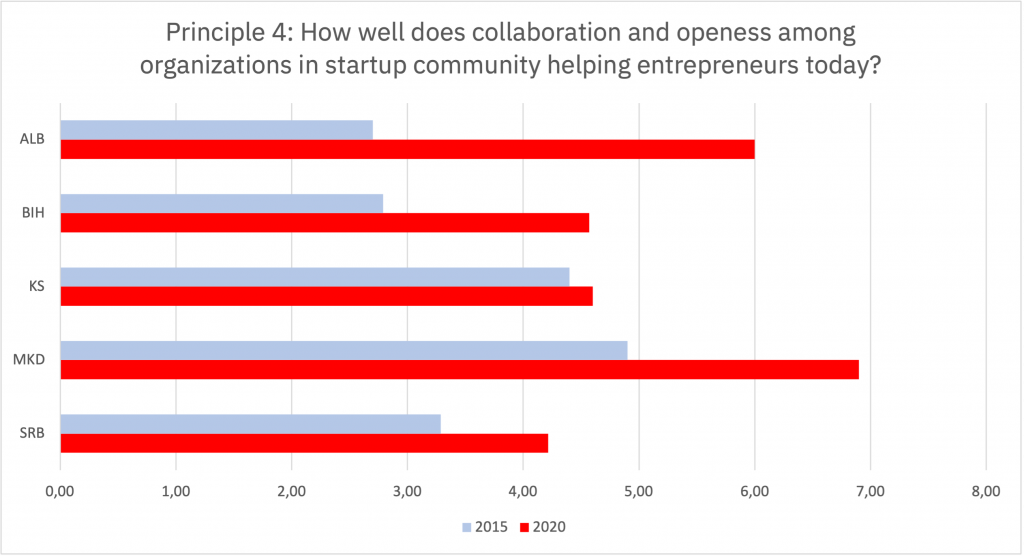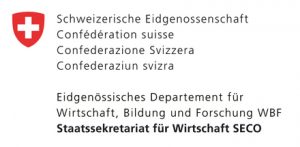Brad Feld promotes critical behaviors in a startup community, such as openness, support and collaboration. This requires an open mind and attitude towards others, an absence of gatekeepers trying to decide who enters the community and a higher sense of commitment among entrepreneurs and organizations in supporting the startup community. These critical behaviors are essential in creating an environment that encourages plurality and creativity over monopoly and conformity. We asked our interviewees “how well do these behaviors reflect reality in the startup community helping entrepreneurs today?”
On average, in Western Balkans, the behaviors reflected the local reality 51% better in 2020 than in 2015, although the progress in Kosovo and Serbia is less significant — around 25%.

In all countries there was a group of interviewees who felt that their local startup community was neither open nor collaborative. Many interviewees admitted that competition among entrepreneurs and organizations was more apparent five years ago, while a few indicated that this competition is still on-going. When the entrepreneur’s ambition is to win the next grant from either a government or a donor agency project, it’s easy to understand that entrepreneurs view her/his peers as competitors, which they are, as they swarm around that one honey pot. When the entrepreneur’s goal is to develop a unique product/service and sell it to multiple customers globally, suddenly other founders in the local community feel less like rivals.
Entrepreneurs appear to talk to each other and help each other on an ad hoc basis. There is no drive for more structured collaboration or even cooperation among them. However, there is a desire to do more together as a group, but only if somebody else could just bring them together and push them forward. There appears to be a limited recognition that the entrepreneurs themselves should ideally do this ‘pushing’, not some external actor. This brings us to the organizations. According to the interviewees, organizations are better at collaborating than entrepreneurs. That collaboration depends on some common interest often imposed on them by projects and above, rather than organically and bottom-up. Often the organizations compete for financial support from the same sources of public money, which harms their willingness to collaborate.
Openness and collaboration occur more naturally among equal actors and within an environment characterized by transparency. When a startup grows to be much larger than others in the community, the peer-to-peer dynamic often disappears. The same is true for organizations. The dynamics and benefits of a pluralistic startup community are held back when one organization becomes too dominant. Such organizations often apply a different set of behaviors, such as closeness and noncooperation, to secure their comfortable and profitable position as unofficial gatekeepers to the startup community.
For positive virtuous such as openness, support and collaboration to prevail within the context of startup communities in Western Balkans, two things need to happen:
- successful local entrepreneurs must step up and get more involved in shaping the entrepreneurial ecosystem’s composition and strength in their hometowns. In particular, they must find ways to contribute time and resources to build and run startup communities and business angel groups, supporting other entrepreneurs.
- Governments and international donor agencies must set plurality targets to guide their support for the entrepreneurial ecosystem. This means that they should incentivize as many local actors as possible to contribute to the local ecosystem’s development and avoid centralization of influence and resources among a few actors.




